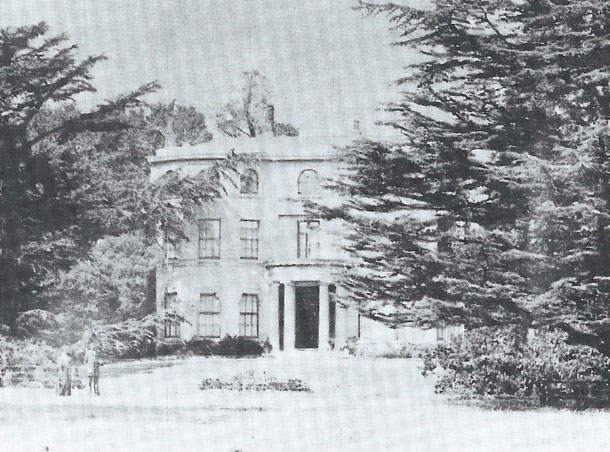Three Walton Manors are mentioned in the Domesday Book- Walton-on-Thames, Walton Leigh, and Apps, the latter being about one mile to the north-east of Walton on the road to Molesey. Its history stretches further back than the Domesday Book however with records of part of its land being given to Chertsey Abbey in 675. Most of its Walton land now lies under the Knights and Bessborough reservoirs.
By 1235, the custom was in place that on All Souls Day each year, the estate must distribute to the poor a barrel of ale, corn, some bread and a pig. This custom (without the pig) was still in place over 600 years later and large crowds would appear annually with jugs cans and even buckets to collect their beer.
The house saw a succession of aristocratic owners and occupiers. In 1590 it was occupied by Cuthbert Blakedon, whose father had rejoiced under the job title of Henry VIII’s ‘Sergeant of the Confectionary’ and in 1602 it was acquired by Francis Leigh whose son, later created Earl of Chichester, consolidated the 150 acre estate into a deer park.
In 1653 Apps Court passed to his son- in-law Thomas Wriothesley, 4th Earl of Southampton, whose daughter, Elizabeth, married firstly Joceline Percy, Earl of Northumberland, and secondly, Ralph, Earl of Montagu. Consequently, the Apps court estate was just a small part of a vast fortune that Montagu amassed during his lifetime.
The house was rebuilt in about 1824 by John Hamborough, and described at the time as ‘white brick with a noble stone portico supported on Ionic columns’. It passed into its final family ownership when purchased in 1854 by Robert Gill, a Railway Engineer who had been involved with George Stephenson in the construction of the Manchester and Leeds Railway.
In 1898, Gill’s widow, Fanny, sold the house and land to the Southwark and Vauxhall Water Company, which demolished it and transformed the park into the two reservoirs now situated between Walton Road and Hurst Rd. While work was in progress in 1906, five Romano British urns turned up in the scoop of an excavator, but only one survived intact.
The Water Company had already made a more challenging discovery however, in the form of a large crowd of people demanding beer and bread on All Souls Day. After the crowd was dispersed by the police, the Company came to a settlement with the Charity Commission by placing £200 in trust for the benefit of the poor of Walton and Molesey.
Today, only Apps Court Farm (once the home farm for the old manor) remains, but the name is perhaps now best known for the popular car boot sales held on its land.
References: Walton Past, Bryan Ellis, Phillimore; 2002. A Short History of Walton-on-Thames. Michael Blackman, Walton and Weybridge Local History Society, 1989. Walton and Weybridge: A Dictionary of Local History. George Greenwood, 1983. Photo courtesy of Elmbridge Museum, Elmbridge Borough Council

